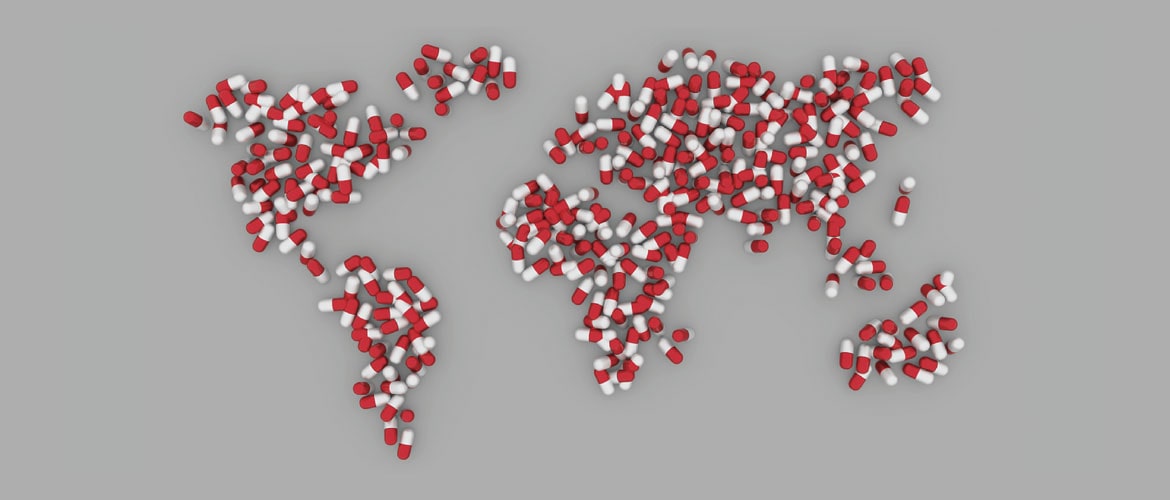For Post-covid Pharma, the Mantra is "Together We Can"
July 30, 2020 | Expert Insights

Mr. Pankaj Patel is Chairman, Cadila Healthcare, which with a US$ 1.9 billion (revenue) is one of the top five generic makers in India. He is also the chairman of the Board of Governors of the Indian Institute of Management-Udaipur and the chairman of Gujarat Cancer and Research Institute. This article is based on his views expressed during the 80th Synergia Virtual Forum on 'Accelerating Development of Novel and Affordable Therapies'.
As the voice of the pharmaceutical industry in the Virtual Forum, Mr. Pankaj Patel provided an industry perspective on public healthcare and stressed the need for innovation through allied efforts of industry, academia, and the government.
One of the important things that this pandemic has brought to fore is that we can all work together, which wasn’t often the case, says Mr. Patel. Making this the new norm after the pandemic would be the next challenge. The unity of effort that is on display trying to find remedies for COVID-19 could be applied with equal zeal in other spheres as well.
ACCELERATION IN THERAPIES
Acceleration of therapies, while keeping the price line affordable, are two independent yet interconnected issues. To achieve accelerated development, there is the need to develop an elaborate and proper ecosystem, says Mr. Patel. This has been seen in Oxford University, the fruit of which will soon be visible to all once the vaccine that they have been working upon comes into use.
There are four factors that are important for accelerated development. The first is to create and maintain quality infrastructure, which would ensure that the tasks needed to be carried out are done. To cross borders to accomplish anything would consume more time and increase costs.
Second, there is a need for a policy framework that supports innovation. This should be the top agenda of governments across the world, a point of view which should not be restricted to the pharma industry only.
The third is the creation of a sound regulatory system. Some of the molecules used in the pharma industry that was developed earlier after intense research have now become obsolete. On the other hand, many drugs produced with only basic testing continue to be effective. The regulatory authorities need to differentiate between the 'must-have' and the 'good-to-have' in the quantum of data generated before a novel therapy is accepted for mass usage. One way to save on time and cost is to retain the ‘must-haves' as mandatory in the regulatory system while allowing dispensation from the ‘good-to-have' on a case-by-case basis.
Finally, there needs to be a strong link between academia, industry, and governments. Research hubs where there is an interaction between people, industry, and tools for innovation, would be beneficial. For this, it is important to keep in mind the global and Indian priorities. Ways to finance these hubs should be found, as each sector cannot do it on its own. But together, it would be possible.
THE PRICE FACTOR
Coming to affordability, it remains a struggle, especially in the current economic conditions. Mr. Patel explained this with the example of HIV therapy, which was very expensive to start with. However, since the bulk of the infections was in low-income countries, there was a global effort to create a multi-source supply, a single regulatory approval system for global supply, and a transparent procurement system. All of this brought down the cost of the therapies such that they were affordable to most people. Apart from this, what can create affordability is the need to augment the supply chain. Rather than depending on one country or one region, a worldwide chain should be created through global participation. New entrants should be welcomed so that the supply chain is strengthened. Enterprises that are able to do so should be given support and rewards like cost-benefit.
Regulations which vary from country to country also add the overall price of the therapy. If a drug is effective in say the U.K, says Mr. Patel, its efficacy should be relevant to other places also like India. Why should it have to undergo regulatory scrutiny all over again? Instead, there should be a global regulatory system. It is recognised that there are high-risk areas in vaccine development and manufacturing which many being made without adequate safeguards or testing or approval. This has to be guarded against.
Overall, more investment is needed in people, innovation, in creating new therapies, and also into the next part of the chain in the healthcare chain, where the patient is being treated. In this pandemic, the biggest casualty has been the healthcare system, which is crippled while struggling to make ends meet. Compensation needs to be looked into, as many are on the verge of going bankrupt. However, opportunities abound, and there is a lot of work to be done.








Comments